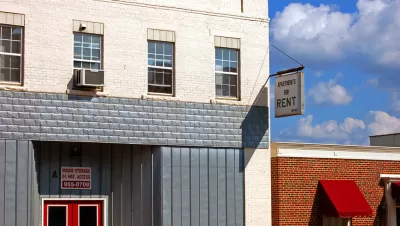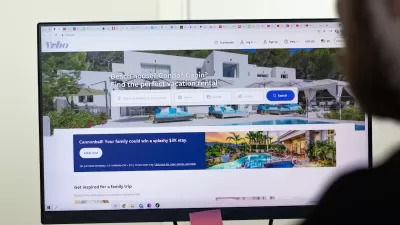Is Airbnb a prime target for regulation, or is it just another way to expand the marketplace for bedrooms? Dan Bertolet urges caution. After all, couldn't less Airbnb just mean more hotels?

In cities like Seattle, where concerns about local affordability have been brewing for a while, short-term rental platforms like Airbnb look like a threat. As the common wisdom has it, they cut off the supply of long-term units, driving rents up. "In response, the Seattle City Council is considering new restrictions targeted at hosts who use Airbnb or similar services as a sort of mini virtual hotel."
But Dan Bertolet of the Sightline Institute sees no reason to panic. While Airbnb's critics aren't necessarily wrong, we don't know enough yet to make a judgement. For one thing, restricting Airbnb would place additional regulatory pressure on an already constrained market. Bertolet writes, "web-based STRs, LTRs, and hotels are each interrelated components of the same citywide housing market, each utilizing the same basic resource: bedrooms."
He goes on, "We also know that housing markets in North America are extremely rigid and inflexible, discouraging all manner of inexpensive housing that could otherwise be helping to ease the affordability squeeze."
As usual, it all comes back to supply and demand. And the demands of Airbnb users more closely align with those of hotel guests than long-term renters. "Hotel and apartment developments compete for the same scarce urban land, so more new hotels means fewer new apartments, and fewer apartments means higher rents. If so, then STR restrictions may be a zero-sum game for affordability."
His overall message is one of caution, but Bertolet also notes that the hospitality industry wouldn't be so vigorously opposed to Airbnb if it didn't cut into their business.
FULL STORY: Why Quashing Short-Term Rentals Is a Zero-Sum Game for Housing Affordability

Alabama: Trump Terminates Settlements for Black Communities Harmed By Raw Sewage
Trump deemed the landmark civil rights agreement “illegal DEI and environmental justice policy.”

Planetizen Federal Action Tracker
A weekly monitor of how Trump’s orders and actions are impacting planners and planning in America.

The 120 Year Old Tiny Home Villages That Sheltered San Francisco’s Earthquake Refugees
More than a century ago, San Francisco mobilized to house thousands of residents displaced by the 1906 earthquake. Could their strategy offer a model for the present?

In Both Crashes and Crime, Public Transportation is Far Safer than Driving
Contrary to popular assumptions, public transportation has far lower crash and crime rates than automobile travel. For safer communities, improve and encourage transit travel.

Report: Zoning Reforms Should Complement Nashville’s Ambitious Transit Plan
Without reform, restrictive zoning codes will limit the impact of the city’s planned transit expansion and could exclude some of the residents who depend on transit the most.

Judge Orders Release of Frozen IRA, IIJA Funding
The decision is a victory for environmental groups who charged that freezing funds for critical infrastructure and disaster response programs caused “real and irreparable harm” to communities.
Urban Design for Planners 1: Software Tools
This six-course series explores essential urban design concepts using open source software and equips planners with the tools they need to participate fully in the urban design process.
Planning for Universal Design
Learn the tools for implementing Universal Design in planning regulations.
Clanton & Associates, Inc.
Jessamine County Fiscal Court
Institute for Housing and Urban Development Studies (IHS)
City of Grandview
Harvard GSD Executive Education
Toledo-Lucas County Plan Commissions
Salt Lake City
NYU Wagner Graduate School of Public Service





























